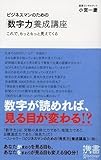Europe's deflation torture is a gift to the Far Left
(欧州のデフレ拷問は極左への贈り物)
By Ambrose Evans-Pritchard
Telegraph:23 May 2010
(欧州のデフレ拷問は極左への贈り物)
By Ambrose Evans-Pritchard
Telegraph:23 May 2010
If Europe's ultra-Left has so far reaped little dividend from the great "Crisis of Capitalism", this will surely change as the eurozone's 1930s policies of wage deflation sap the credibility of the governing centre and the EU itself.つづく
ヨーロッパの極左がこれまで「資本主義の危機」から殆ど利益を得ていないとすれば、これは確実に変わるだろう。ユーロ圏の1930年代の賃金デフレ政策は、統治機関とEUそのものの信頼性を弱体化させたのだから。
The tragedy of the interwar years in Germany was that the Social Democrats - then the world's foremost socialist party - became fatally tainted by acquiescing in Bruning's deflation torture from 1930 to 1932. They did so, of course, because they dared not confront the orthodoxies of the Gold Standard.
ドイツにおける両大戦間の悲劇は、ドイツ社会民主党(当時は世界一の社会主義政党だった)が1930-1932年のブリューニング政権下でのデフレ拷問に黙諾したことで、同党に致命的な傷がついたことだった。
勿論、金本位制正統主義者と対立する勇気がなかったので、SPDは黙諾したのだ。
By then the fixed-exchange mechanism had gone horribly wrong - in much the same way that EMU has gone horribly wrong - because the surplus countries were not recycling demand to maintain equilibrium. It had become a job-destruction machine. The result in Germany was the Reichstag election of July 1932 when the Communists and Nazis won over the half the seats.
その頃までに、EMUが酷い状況になるのとほぼ同じ形で、固定為替制度は酷い状況になっていた。
それというもの、黒字国が均衡を維持するために需要をリサイクルしなかったからだ。
固定為替制度は失業者製造マシーンと化していた。
その結果、ドイツでは1932年7月の総選挙で、共産党とナチスが半分ずつ議席を獲得した。
As historian Simon Schama wrote over the weekend in the Finanicial Times - "The world teeters on the brink of a new age of rage: we face a tinderbox moment" - there is typically a lag-time between economic shocks and social fury. Luckily there is no Fascist threat this time. It is the (more benign) Marxist Left that stands to gain.
歴史家のサイモン・シャマラ氏が週末のFT紙で記した通り、「世界は新たな怒りの時代の瀬戸際にある。我々は一触即発の瞬間にある」。
通常、経済危機と社会的怒りの間にはタイムラグがある。
幸運にも、今回はファシストの脅威はない。
得をしようとしているのは、(より温厚な)マルクス主義左派だ。
Perma-slump has already chipped at the left flank of the ruling Socialists in Portugal. The Communist Party (PCP) and the Maoists and Trotskyists of the Left Bloc together won 18pc of the vote in September 2009, leaving premier Jose Socrates with the lonely task of enforcing yet more austerity by minority government.
恒久的不況は既に、ポルトガルの与党社会党左派にダメージを与えている。
共産党(PCP)と左派の毛沢東主義者とトロツキー主義者は、2009年9月の選挙で18%の得票率をあげ、ジョゼ・ソクラテス首相は少数与党政府で更に緊縮政策を押し進めるという孤独な作業を行うこととなった。
Communist leader Jerónimo de Sousa said last week that the country was being reduced to a "protectorate of Brussels", cowed into submission by financial blackmail. He invoked the civil war in 1383 when the country rallied heroically to expel the foreign opressor - with English help, the "ultimato inglês" as he calls it - from Portuguese soil.
共産党のJerónimo de Sousa党首は先週、ポルトガルは財政的脅迫に屈して、「EUの保護領」に貶められたと述べた。
デ・ソウサ党首は、彼が「ultimato inglês」と呼ぶ英国の支援を得て、ポルトガルが外国の迫害者を追放すべく英雄的に蜂起した、1383年の内戦を引き合いに出した。
"It is not just the Communists who are worrying about this. There are a great numbers of Portuguese who are concerned that this country built over the centuries, for better or worse, on a foundation of sovereignty and independence is endangered by accepting everything that comes from Brussels without a trace of patriotism. The EU's claim of economic and social cohesion is just propaganda," he told Publico.
「これを懸念しているのは共産党だけではない。非常に多くのポルトガル人は、何世紀もかけて、良かれ悪しかれ、主権と独立を基盤として築き上げられたこの国が、愛国主義の微塵もなくブリュッセルの言いなりになることで存亡の危機にあるのではないか、と懸念している。EUの経済的、社会的一貫性の主張はプロパガンダに過ぎない」とデ・ソウサ党首はPublico紙に語った。
"Monetary union is not in the interests of Portugal or the Portugese people. The economy has ended up the way it is for fundamental reasons, not because of some curse, or some Plague of Egypt descending on Portugal. If we don't go to the root of the matter we will face yet harsher measures, in a spiral towards the abyss," he said (my loose translation: http://www.publico.pt/Pol%C3%ADtica/jeronimo-de-sousa-portugal-pode-transformarse-em-protectorado-de-bruxelas_1438221).
「通貨同盟はポルトガルの国益でもなければ、ポルトガル人の利益でもない。経済はファンダメンタルな理由によりこのよな状態になったのであって、何かの呪いのせいでもなければ、十の災いがポルトガルを襲ったからでもない。根本的な問題に取り組まなければ、底なし地獄への悪循環の中で、一層厳しい措置をかされるだろう」と述べた(ポルトガル語からの大まかな英訳は僕)。
What this comes down to is "ownership" of austerity policies. It is hard enough for the elected parliament of an ancient and sovereign nation to impose cuts - as Britain discovered in September 1931 when Royal Navy ratings at Invergordon refused to set sail after the Admirality docked pay by a shilling - but what is the charisma and ordaining legitimacy of an EU council of ministers meeting behind closed doors in Brussels?
結局は、緊縮政策の「主」は誰なのだということになる。
歴史の長い主権国家の、選挙で選ばれた議会でも、削減を行うのは困難だ。
英国では、インヴァーゴードンの英国海軍が賃下げに怒って出向を拒絶した1931年9月に判明した通りである。
だが、ブリュッセルで非公開に行われているEU閣僚会議に、どんなカリスマや制定する資格があるというのか。
 | ビジネスマンのための「数字力」養成講座 (ディスカヴァー携書)小宮 一慶ディスカヴァー・トゥエンティワンこのアイテムの詳細を見る |



















